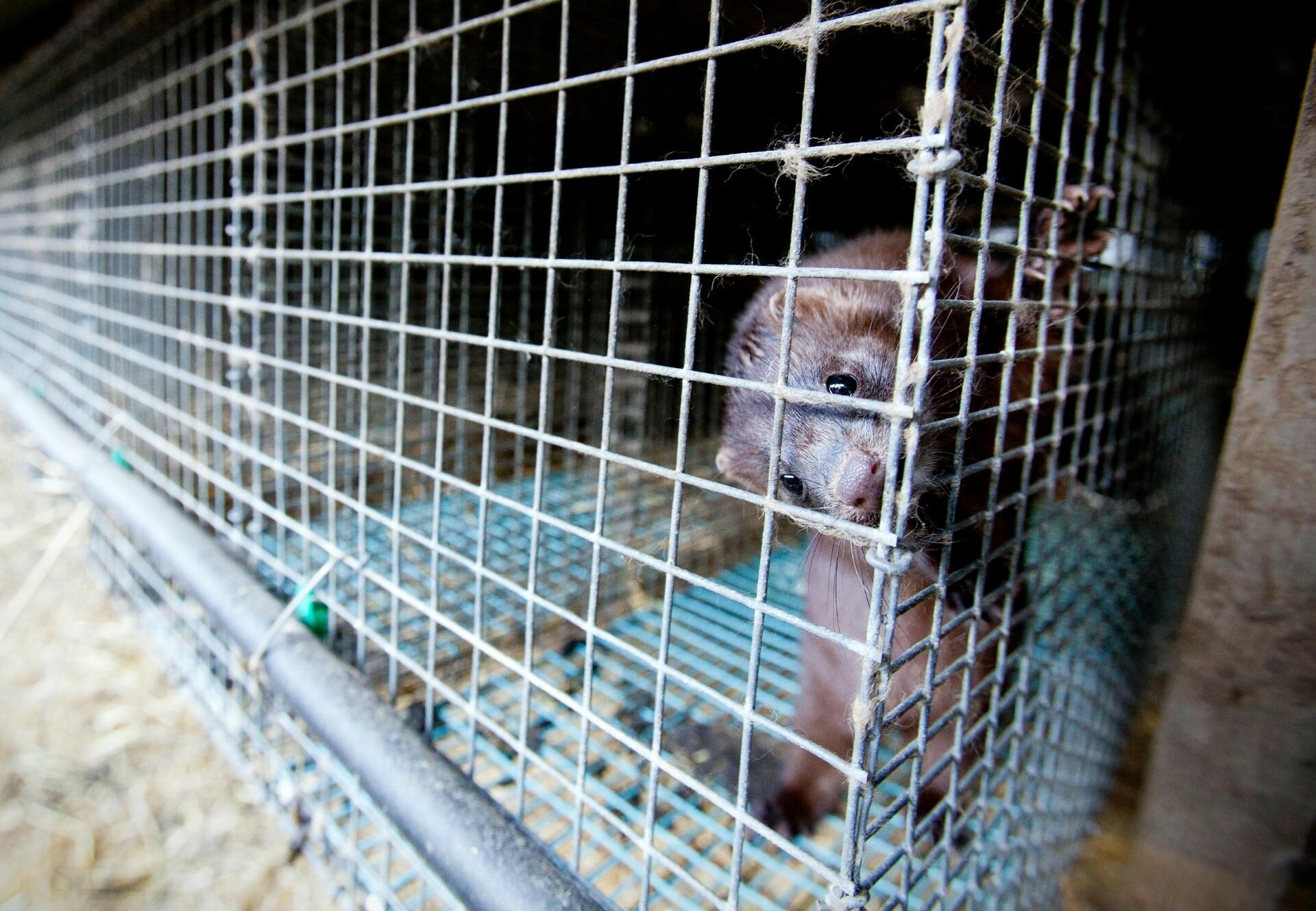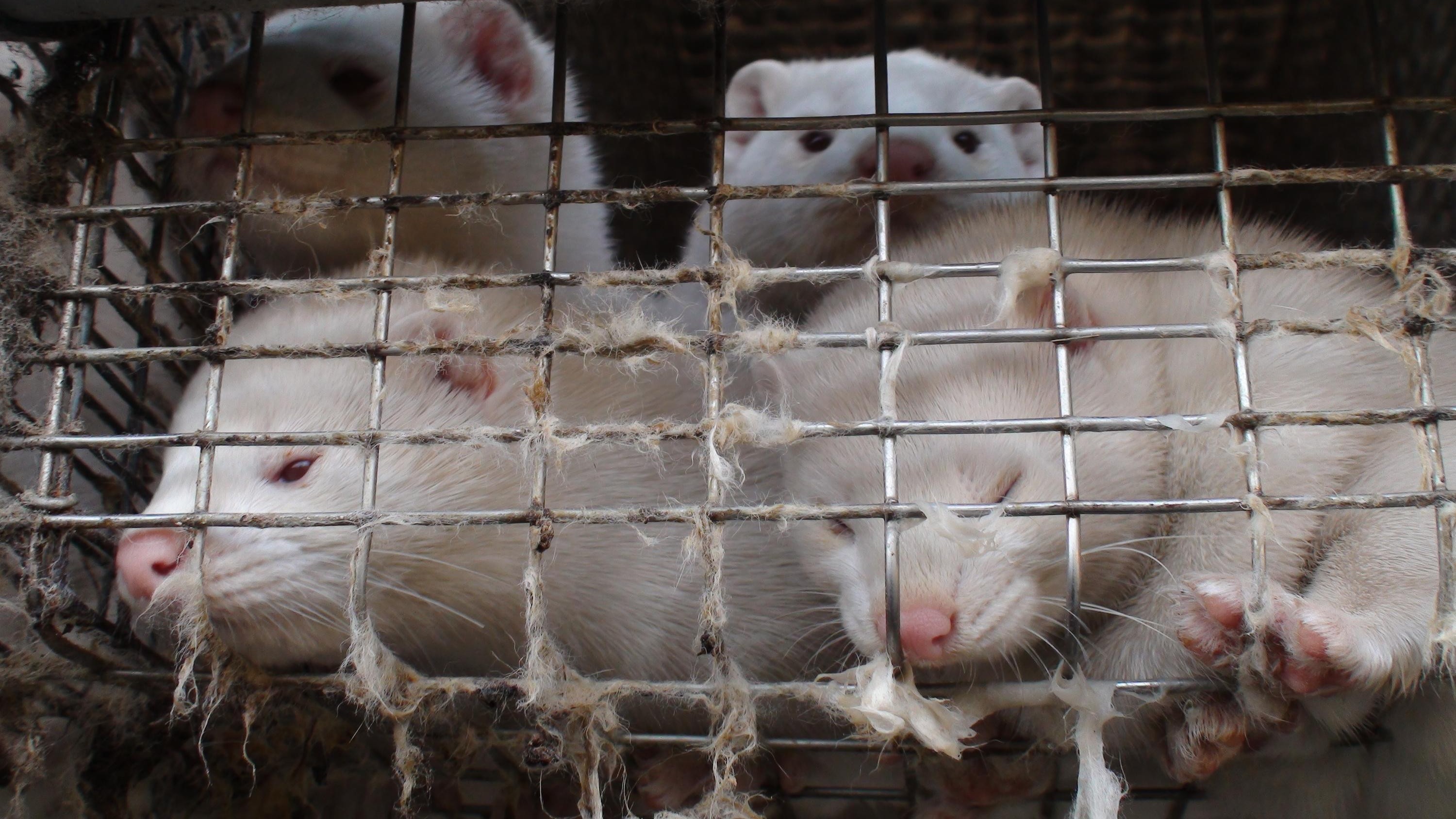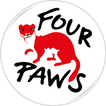
COVID-19 in fur farms
The EU must act immediately to avert danger to humans and animals
Since April 2020, SARS-CoV-2, the virus causing COVID-19, has been raging in mink farms. After the problem first appeared on Dutch farms, coronavirus has since been detected in more than 450 mink farms, not only in the Netherlands but also in Denmark, Spain, Sweden, Italy, France, Poland, Greece, Lithuania, Latvia, Canada and the USA.
Millions of animals killed
In many of the affected countries, all animals on infected farms are usually killed. Normally, on mink farms, the killing for fur production, the so-called 'harvest season', begins at the end of November. In Denmark alone, the largest European fur producer, the entire mink population of 17 million animals was culled in 2020, including animals on non-infected farms. In Danish mink farms, it has also become evident that SARS-CoV-2 is capable of jumping back and forth between humans and mink, with potential for the virus to mutate in mink prior to re-infecting people.

Risk to humans and animals
Mink bred for their fur are kept in tiny wire cages, where the wild loners have no chance of satisfying their basic needs. Stressed or weakened animals, crammed closely together with thousands of conspecifics, provide the ideal breeding ground for the spread of infectious diseases. It has been scientifically proven that minks are highly susceptible to COVID-19. The last two years have shown that the virus is on the rise in cruel mink farms, regardless of whether stricter biosecurity measures have been taken or not.
Coronavirus outbreaks pose a significant risk not only to the animals themselves but also to farmworkers and local residents living near affected farms. In Denmark, more than 200 people have become infected with SARS-CoV-2 from mink farms, some of them with a mutated form of the virus known as 'Cluster 5', which could reduce the effectiveness of vaccines. Raccoon dogs can also become infected with the virus and may serve as intermediate host for this virus too.
Individual countries act
Although the death of millions of mink - whether culled for COVID-19 or killed for their fur – is an animal welfare tragedy, responsible governments around the world now have the opportunity to put a stop to this cruel and outdated industry.
Some countries have already taken this opportunity:
- Following the massive COVID-19 outbreaks on mink farms, the Netherlands announced in August 2020 the early end of fur farming and since 2021 mink farming is prohibited.
- In September 2020, France also decided to end its mink farming.
- In November 2020, Hungary banned the breeding of mink and foxes, polecats and coypus due to animal welfare concerns and public health risks, and therefore no farms can be opened there.
- In January 2021 Sweden decided to suspend mink farming for 2021, which means no breeding will take place. In Flanders (the last region with mink farms in Belgium) mink farmers declared voluntarily to suspend production until end of 2021.
- In February 2021 Italy decided to suspend mink farming for the entire year 2021.

FOUR PAWS demands
FOUR PAWS calls for an EU-wide fur farming ban and an end to the trade in fur products.
As short-term rapid action to contain the SARS-CoV-2 pandemic, the following measures need to be taken:
- Suspension of mink and raccoon dog farming throughout the EU as an emergency measure.
- Suspension of all transports of live minks and raccoon dogs within the EU.
- Suspension of importing minks and raccoon dogs from third countries into the EU.
- Suspension of export and import of raw pelts both within the EU and from/to third countries.
- Mandatory testing for COVID-19 on all fur farms as well as a registration of all fur farms with immediate effect.

